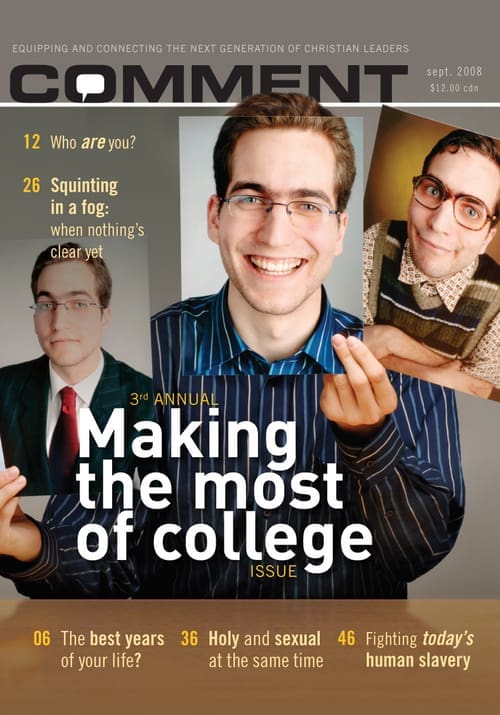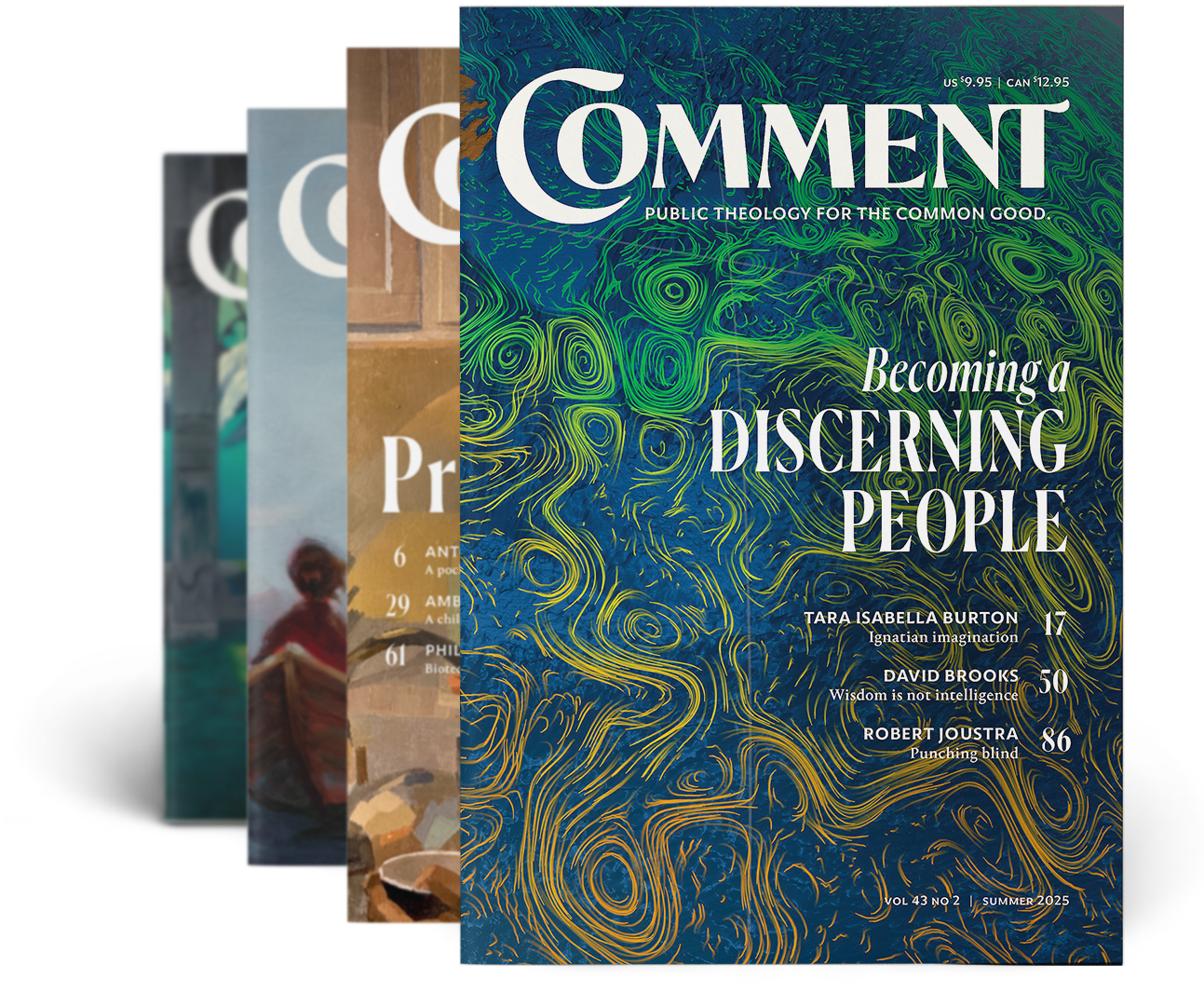This is our third annual “Making the most of college” (and university) issue. Drawing on their own experiences as students and mentors, our authors ask what kinds of practices and habits will open up the undergraduate years—as a time of learning to understand the world from the perspective of the wisdom of the Bible, as a time to make friends and find wise teachers, as a time to ask big questions and begin to discern a vocation, as a time of reflection and action. In addition, we are introduced to a contemporary artist and a Roman Catholic intellectual who influenced a generation of young people around the world.
My own advice, this time around? Three simple practices that have made a big difference in my own learning, as a student and in the years since:
1. Store your writing in more than one place. I am no computer wizard—perhaps not a complete dunce, but certainly not at the leading edge of current technology. So, perhaps, this advice is already dated, and I just don’t know it! But the principle, I believe, endures: make sure that you store your ideas, your papers, and your notes in more than one place. Few things have been the cause of as many tears among my students over the years as papers lost due to computer malfunction. I do three things with each vital piece of writing: (a) save it on a shared hard drive or server at home or at one of my offices, (b) email it to myself using one of my email setups (including the wonderful gmail), and (c) have it backed-up to carbonite.com (the easiest cloud storage option I have been able to find).
2. Make use of a reliable note-taking method. My own method is very old-fashioned. I use it for workflow management and processing my non-fiction reading. I use pens and index cards and little storage tins and boxes, and a handful of rules derived from Umberto Eco’s Come si fa una tesi di laurea (which, knowing no Italian, I read in Dutch while writing my master’s thesis), Kenneth Atchity’s A Writer’s Time, and the hipsterPDA/43folders.com versions of David Allen’s Getting Things Done method. But what method you use is less important than using some method with some consistency.
3. Read a few great magazines, fanatically. Magazines contain and enable wonderful conversations. Magazine articles often capture an issue or an idea more clearly than a book does . . . and given their brevity are easier to squeeze in between required reading. A well-edited magazine has a tone, a flavour, a personality. A really great magazine nurtures a community of people who identify closely with the direction and the style of the magazine, and invites you in to join that community. Some of my best learning, greatest discoveries, and most passionate provocations have come from magazines. In addition to Comment, I recommend, at the very least, Image, Books & Culture, and catapult.



